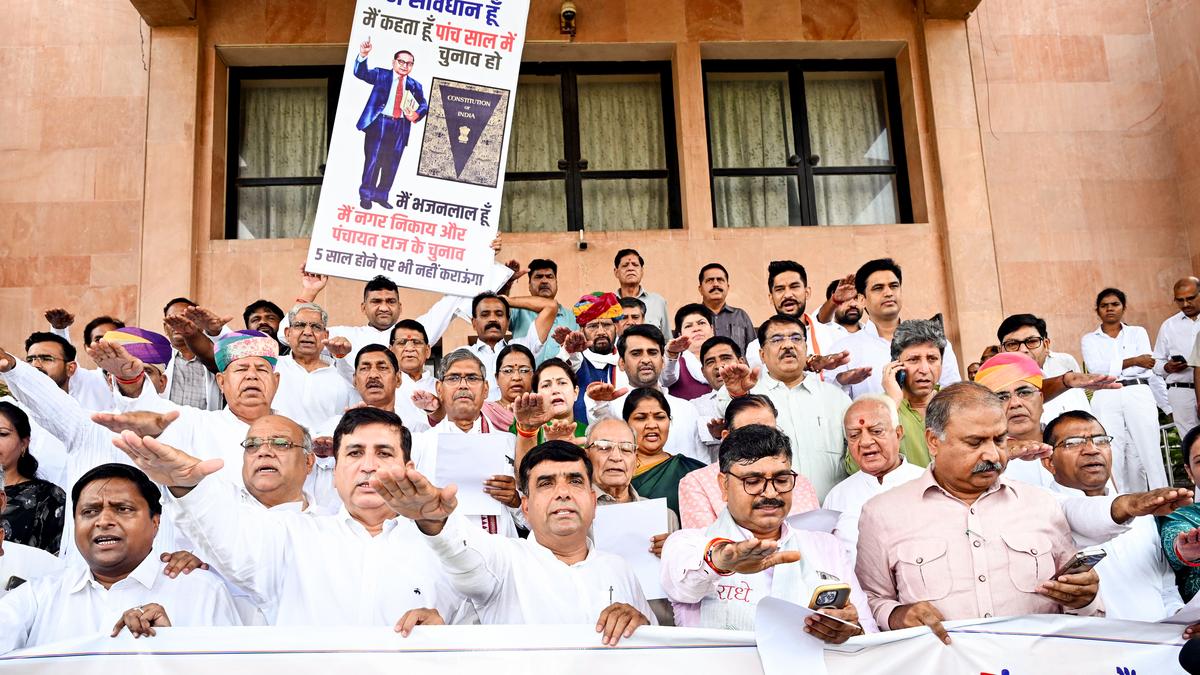Now Reading: Rajasthan Assembly Approves Anti-Conversion Bill with Stricter Penalties
-
01
Rajasthan Assembly Approves Anti-Conversion Bill with Stricter Penalties
Rajasthan Assembly Approves Anti-Conversion Bill with Stricter Penalties

Quick Summary
- Bill Passed: Rajasthan Assembly passed the Rajasthan Prohibition of Unlawful Conversion of Religion Bill, 2025, aimed at preventing forceful or fraudulent religious conversions.
- Key provisions: Includes penalties such as life imprisonment, fines up to ₹1 crore, confiscation/demolition of properties hosting mass conversions; services for compensating victims are outlined.
- Exemptions: Returning to ancestral religions will not fall under the Bill’s provisions.
- Legal Context: Offences under this law are non-bailable and triable by sessions courts; marriages solely for conversion will be declared void.
- Protest by Congress MLAs: Opposition boycotted the debate and staged a walkout over concerns of communal disharmony.
- Background: similar past attempts to enact anti-conversion laws in Rajasthan (2006-08) faced obstacles including rejection from President Pratibha Patil and opposition parties. Guidelines restricting forcible conversions were issued in 2017 by the Rajasthan High Court.
- Wider Implications: The law makes Rajasthan one among several BJP-lead states that have enacted similar anti-conversion legislation, such as Uttar Pradesh, Haryana, and Uttarakhand.
Indian Opinion Analysis
The passage of this Bill represents a notable legislative step toward addressing perceived issues of forced or fraudulent religious conversions within India’s framework on freedom of religion (Article 25). Its stringent provisions might act as deterrents against unethical practices but also risks sparking concerns about individual autonomy in religious choice if improperly implemented.
While proponents argue for safeguarding peace and cultural harmony through measures ensuring voluntary practise free from coercion or deceit, critics worry about potential misuse leading to heightened societal tensions-an issue already flagged by the opposing Congress MLAs during thier walkout.Given its similarities with laws enacted in other BJP-led states, it signals consistency among regions governed by this party regarding their approach toward regulating religious practices when fraud is alleged. However, balancing enforcement without infringing on personal rights remains paramount for long-term communal harmony within India’s pluralistic society.
Link for read more: Source






















